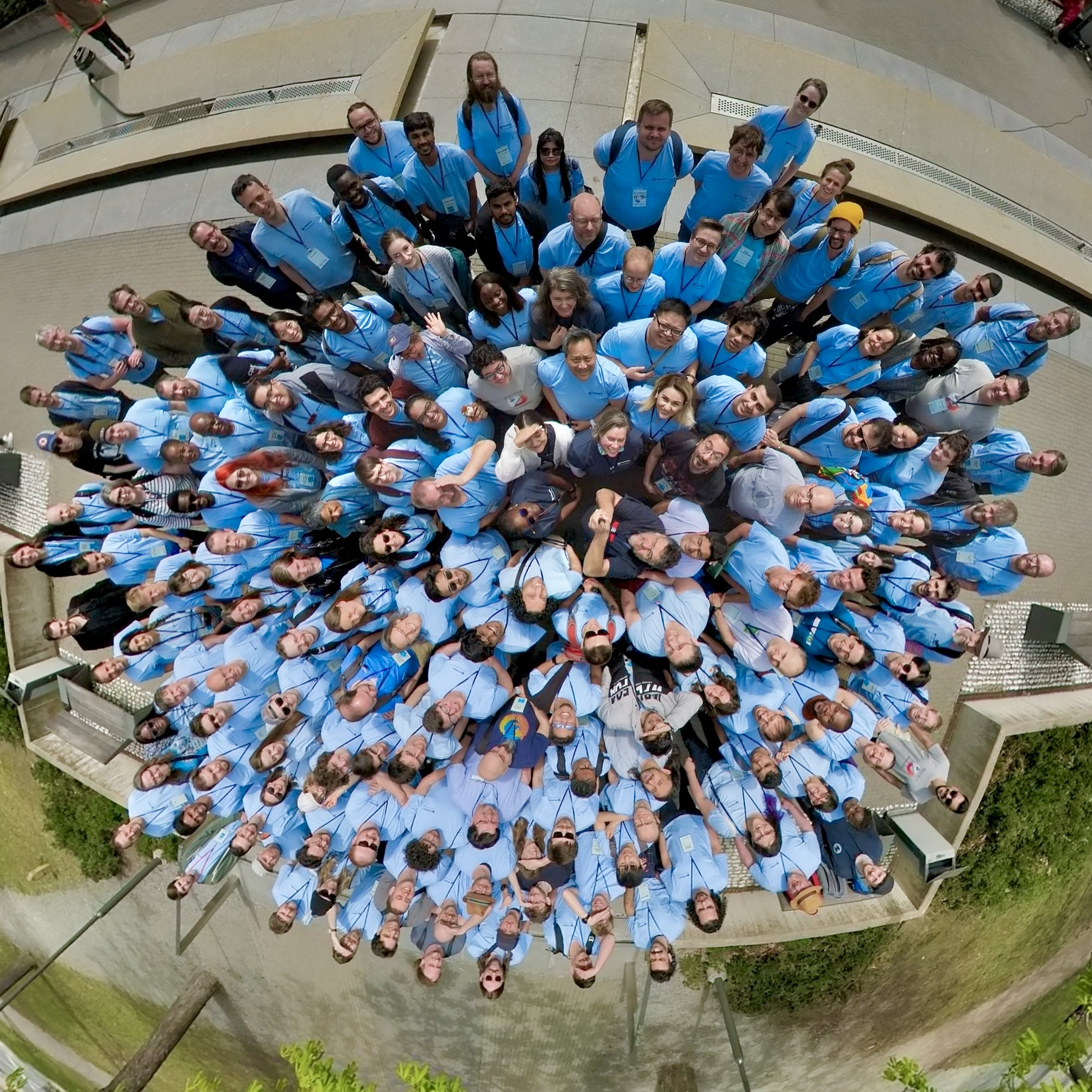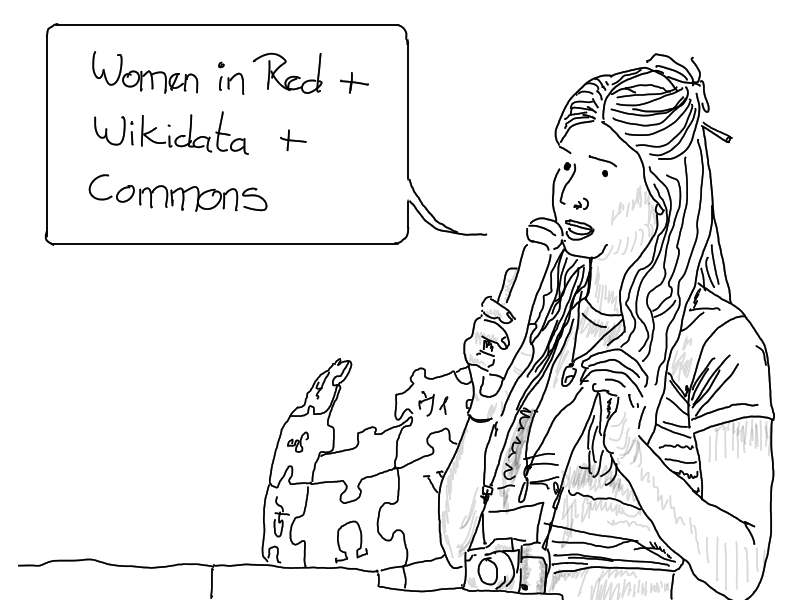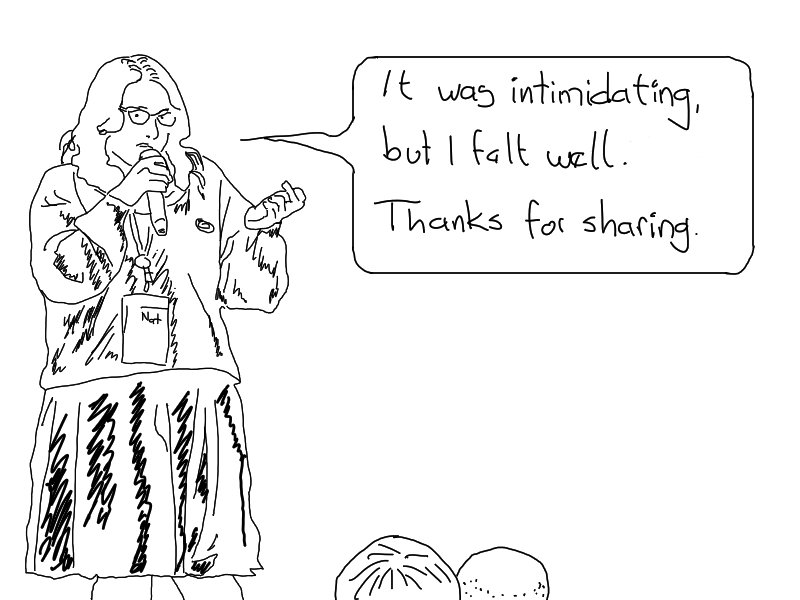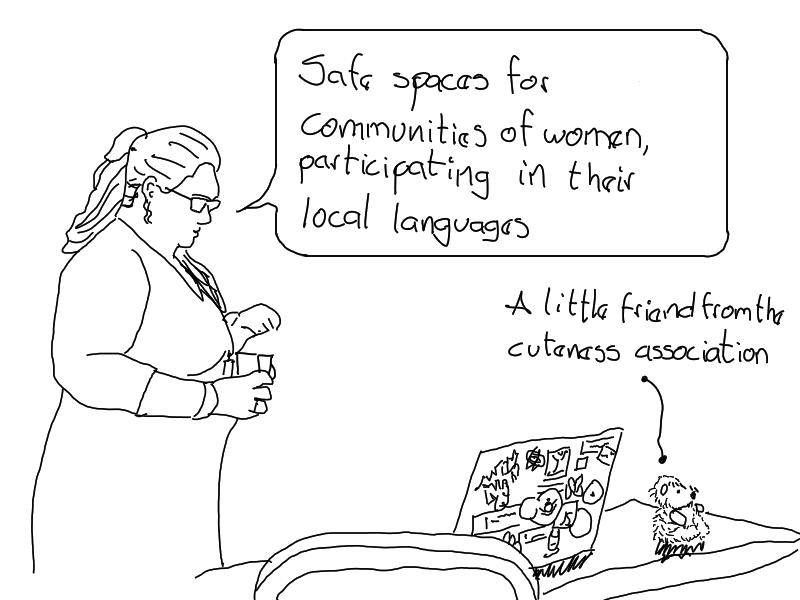My first Wikimedia hackathon
May 13, 2024
I participated in this event that seeks to develop new tools for the Wikimedia environment. I participated to better understand how the Wikimedia Movement works from its most technical side. Also, to see what it is like to experience an event for software programmers from a gender perspective. Here my notes about this experience.
A marathon for hacking

This is the site of the 2024 hackathon. The event consists of software developers from around the world coming together for 3 days to collaborate. They seek to create new tools in this short time that are useful for the different Wikimedia projects. Of course, the best known is Wikipedia, but there are many more.
Previously, via email, they asked me to include information in the event's Phabricator. In this collaboration software for software development you publish your proposal, people subscribe to those who want to collaborate and assign tasks or exchange messages. I tested it by creating a proposal to develop a public domain calculator. I liked that my friend Olea joined and immediately sent me messages from people who work on the issue. He also posted links of interest. I did not continue with the idea of developing the calculator, because it seemed much more interesting to understand the event better. However, I really like the idea of collaboration, almost instantaneous. For example, in this link you can find the photos of the event in Commons. They have free licenses, so I did not have to manage the rights to reuse them. It feels very good when the spirit of collaboration is in the air.
The event model was an unconference. This means that there is no academic committee or group of people who decides who presents and who observes in advance. If you have an idea that you would like to present at the event, you went to the program and if you found a free space, you signed up during the event. Taht's it! The meeting spaces were 30 minutes, except for the opening and closing conference. I liked that projects like Andrew Lih and Olga Tichonova's proposed meetings every day at 11:00 in the morning. This way, you knew how the project was progressing during the hackathon.
During the initial session, people could announce in 30 seconds what they would be working on during the hackathon. In this part of the opening video you can see the 30-second interventions. There are many interesting ideas to pursue. Since I'm interested in GLAM and gender themes, I wrote down a few. For example, that one by Neslihan Turan (Turkey) which sought to create an interface between Wikidata and Commons so that portraits of women are included in the creation of Wikidata elements. Thus, Neslihan's project promoted Women in Red. Nat Hernández Clavijo, from Wikimedistas de Uruguay, would work on Wikicurricula to obtain metrics for articles in resumes. The GLAM CSI Stories project by Andrew Lih (United States) resonated with me. Also, one by Ismael Olea (Spain) on Very Small GLAM to use ontologies in small cultural and heritage institutions.

The space was arranged so that there were group work spaces. Tables for 6 people, where it was easy to share, discuss and work on the development of these projects. Spaces of silence and food.
In the closing session, a smaller group presented the results of 3 days of work. In this video you can find the closing session. In this pad you will find the links to the presentations or tools that were developed during those 3 days. I found it funny that the strangest applications were the ones that received the most applause from the audience.
This message has a spelling error from years ago and in this hackathon we corrected it.
Valerio Bozzolan (Italy) with his group «Maximum effort, minimum results»
From Latin America I recognized participants from Mexico, Brazil and Uruguay. It seemed to me that it is difficult to access these spaces from our region. But how to get more people to take part in these initiatives? I hope this text is a step in that direction.
Nat's intervention
At the closing ceremony, there were 15 minutes left and anyone could say whatever they wanted. Nat said something like this. It was very pleasant to hear it:
I don't always feel comfortable with so many men and programmers who know so much. It was intimidating, but it felt good. Thanks for sharing.
Nat
Nat said it because there are many men and few women at this event. Before, I also commented that I didn't feel like there were many people from Latin America. They are intimidating spaces. However, Nat did something that I really liked: they told me that they wanted to collaborate and sat at the table with Tuukka Hastrup (Finland) to work on the geopositioning project and photos. At the closing ceremony, they and Tuukka presented their project.

I liked it because what Nat did seemed disruptive to me. I think it was because they entered into the logic of the event. Something that usually happens in these spaces is that there is openness, but it is an imposed opening. For example, the restrooms in the place were of 3 types: for men, for women and for queer, non-binary or disabled people. You open the option to have different restrooms, but what I would like to see most is that you can use any space and there is not a separation. It's like when spaces are included to change diapers for babies and they are only found in the women's restroom 1. I think Nat broke something by integrating themself into the event the way they did and that was cool.

I was looking forward to working on Nat's project. However, I don't think this is a bad thing. Having met in this space brought us closer. Although we did not focus on their project at the Tallinn hackathon, the fact that I write about Wikicurricular is an advance. Recognizing and naming us is a way of getting closer. I liked that I told them about Leo from Wikimedia Colombia and they said that they were sharing at the GLAM Wiki event in Uruguay.
A discussion about more women in technical spaces

The presentation was given by Bhuvana Meenakshi (India). In this link is Bhuvana's proposal in Phabricator about the talk. I offered to take the notes.
Her proposal is very interesting because it seeks to bring women closer to technology. There are things that can go unnoticed, like you should discuss with your family what the purpose of participating in technical spaces is. The burden of unpaid household chores can be a barrier to entry into the technical community, Bhuvana argued. She and her community are creating local spaces for women to have the option to get involved in technology and have a support group, in their native language.
Bhuvana mentioned that the technological field is so big, that you usually don't know where to start. And this can be something that blocks you and doesn't let you move forward. At one point during her activity, she asked the audience what experience they can share about how to get more women involved in technology. It was very common to hear that the construction of safe spaces, where failure is frowned upon, is necessary. They mentioned imposter syndrome as a reason why women remain invisible. It was very interesting to hear about the changes in logic. Leave spaces of competition to change them for spaces of collaboration.
I arrived very early to settle into the space. It was curious that a group of women came in and one of them said out loud "It's going to be only women!" oops” when I turned around and my beard seemed to immediately contradict it. I didn't mean to make her feel bad. However, I think these spaces need more feminists of any gender.
I read about this session in Afi's post. Although I missed the Cuteness Association meetup. I think Bhuvana had a friend from this meeting in her session, a stuffed animal that accompanied her while she presented.
As a closing
I have nothing but thanks for this event. It was a new experience for me and I thank the organizing committee for allowing me to participate in it.
At the closing dinner, Vera de Kok recommended that I watch the video The problem with applied behavior analysis by Chloe Everett. I also had the fortune of speaking with Valerie Wollinger who was a box of surprises. She told me that the Internet is capable of absorbing a lot of information and data and in some way, we are emulating the Internet, but we are human beings. We don't have this enormous processing capacity. I think that a hackathon is very demanding and it feels very good to think about spaces of care, with more relaxed times. Valerie is very right.
I liked talking to Sussana Ånäs, whom I consider a reference in the GLAM sector at Wikimedia. She told me that what she was looking for in these events was to hack the content circulating on Wikimedia. I found this idea very powerful.
I have two questions: How to get more people from Latin America to participate in these spaces? And how can we make more human technologies or development spaces more friendly to our vital rhythms?
-
I am very grateful to whoever organized this type of spaces. I'm not criticizing the way they opened non-binary bathrooms. I want to refer to the fact that there are different ways of opening these spaces and the way it was done makes it feel like cuir is not necessarily welcome. It is a step in the right direction, diversity, but as a society we still have many steps to take. ↩